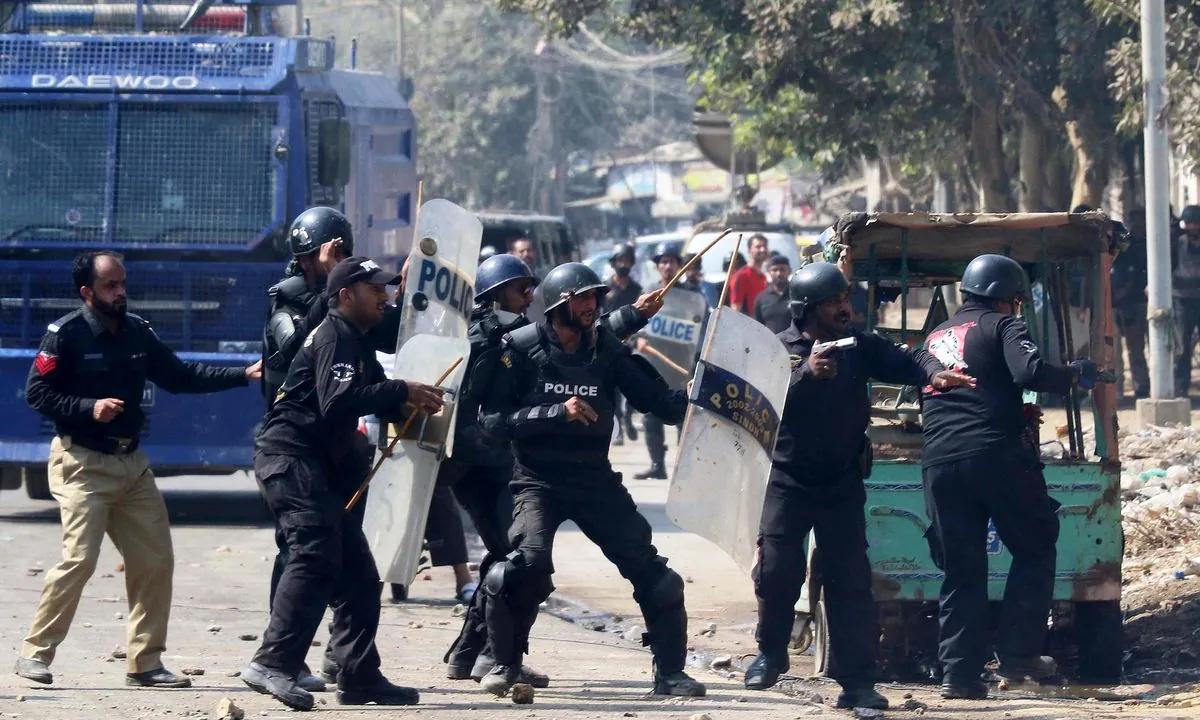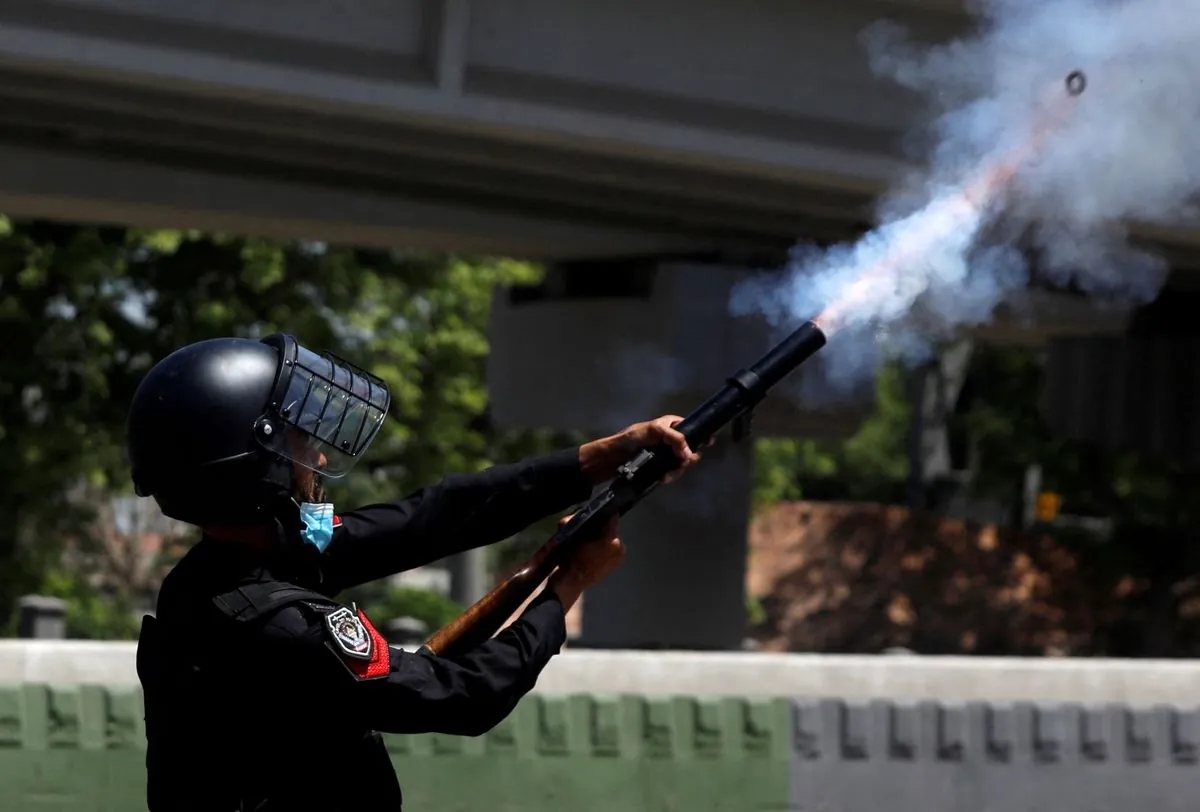Karachi Protests Erupt Over Hezbollah Leader's Death, Clashes with Police
Demonstrators in Karachi clash with police near U.S. consulate, protesting Israel's killing of Hezbollah leader. Pro-Iran party organizes rally, while Hezbollah retaliates with rocket attacks on Israel.

In a recent development, the city of Karachi, Pakistan's largest metropolis and capital of Sindh province, witnessed significant unrest as demonstrators clashed with law enforcement near the U.S. consulate. The protests, occurring approximately one year ago, were in response to the death of Sayyed Hassan Nasrallah, the long-standing Secretary-General of Hezbollah, in an Israeli airstrike in Beirut.
The rally, organized by the pro-Iran Shi'ite political party Majlis Wahadatul Muslimeen, drew an estimated 3,000 participants. Protesters, carrying images of Nasrallah and chanting anti-American slogans, attempted to breach police cordons to approach the U.S. diplomatic mission.
Police Deputy Inspector General Asad Raza reported that law enforcement had to employ crowd control measures, including baton charges and tear gas, to disperse the crowd when demonstrators exceeded pre-agreed boundaries. The confrontation resulted in injuries to seven police officers, who required hospital treatment due to stone-throwing by protesters.

The incident highlights the complex geopolitical dynamics in the region. Pakistan, with its significant Shi'a minority comprising 10-15% of the population, often sees demonstrations related to Middle Eastern conflicts. The country's lack of diplomatic relations with Israel further complicates its stance on such issues.
Hezbollah, designated as a terrorist organization by the U.S., has been engaged in ongoing conflict with Israel since the 1980s. The group, heavily supported by Iran, maintains a strong presence in southern Lebanon bordering Israel. In response to Nasrallah's death, Hezbollah launched new rocket attacks against Israel, a tactic frequently employed in this long-standing confrontation.
The international community closely watches these developments, as events in the Middle East often have far-reaching implications. The U.S., with its history of mediating in the region, finds itself at the center of protests despite not being directly involved in the incident that sparked the unrest.
As tensions escalate, concerns rise about potential retaliatory actions and the impact on regional stability. The use of airstrikes for targeted killings, while controversial, remains a common tactic in modern warfare. However, the death of high-profile leaders like Nasrallah often leads to cycles of violence and retaliation.
The situation in Karachi serves as a reminder of the global repercussions of Middle Eastern conflicts and the challenges faced by law enforcement in managing public demonstrations. As investigations into the violent protests continue, authorities have stated their intention to pursue legal action against individuals involved in aggressive behavior during the rally.
"Police had to resort to baton charging and tear gas against those who breached the cordons in a bid to disperse the crowd."
This event underscores the ongoing tensions in the region and the potential for localized incidents to have broader international implications. As the situation develops, the world watches closely, aware of the delicate balance of power and the potential for further escalation in an already volatile region.


































